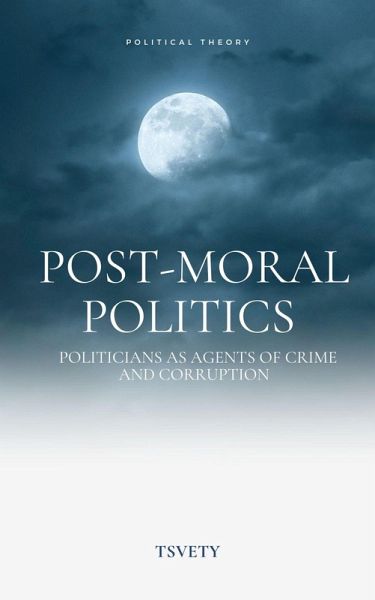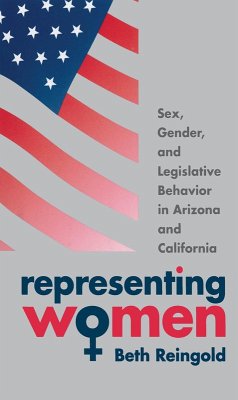
Post-Moral Politics. Politicians as Agents of Crime and Corruption (eBook, ePUB)

PAYBACK Punkte
0 °P sammeln!
In Post-Moral Politics, Tsvety delves into the contemporary landscape of political leadership, where traditional moral frameworks have crumbled and been replaced by a disconcerting void. The modern politician, portrayed vividly throughout the work, emerges as a figure devoid of moral compass, integrity, and accountability. Rather than being bound by principles, they appear driven by personal gain, opportunism, and the art of maintaining power at all costs.This work examines the erosion of ethical responsibility in politics, where decision-making is no longer anchored in the welfare of society ...
In Post-Moral Politics, Tsvety delves into the contemporary landscape of political leadership, where traditional moral frameworks have crumbled and been replaced by a disconcerting void. The modern politician, portrayed vividly throughout the work, emerges as a figure devoid of moral compass, integrity, and accountability. Rather than being bound by principles, they appear driven by personal gain, opportunism, and the art of maintaining power at all costs.
This work examines the erosion of ethical responsibility in politics, where decision-making is no longer anchored in the welfare of society or a sense of duty, but rather in short-term calculations that prioritize image over substance. The book critiques the political class for their lack of professionalism, highlighting how many leaders fail to exhibit the skills or expertise necessary to navigate complex issues, often relying instead on populism, manipulation, and superficial charisma to maintain their positions.
Post-Moral Politics explores how this degeneration of values leads to widespread disillusionment among the populace, undermining democratic institutions and the legitimacy of governance. The author dissects the structural mechanisms that allow such figures to thrive, including media complicity, the rise of social media, and a culture that rewards spectacle over genuine leadership.
A scathing analysis of the contemporary political arena, this book challenges readers to question the ethics and competence of their leaders, calling for a renewed emphasis on accountability, expertise, and moral leadership. Post-Moral Politics is an urgent reflection on the state of politics today, and a call to action for citizens to demand more from those who wield power over their lives.
This work examines the erosion of ethical responsibility in politics, where decision-making is no longer anchored in the welfare of society or a sense of duty, but rather in short-term calculations that prioritize image over substance. The book critiques the political class for their lack of professionalism, highlighting how many leaders fail to exhibit the skills or expertise necessary to navigate complex issues, often relying instead on populism, manipulation, and superficial charisma to maintain their positions.
Post-Moral Politics explores how this degeneration of values leads to widespread disillusionment among the populace, undermining democratic institutions and the legitimacy of governance. The author dissects the structural mechanisms that allow such figures to thrive, including media complicity, the rise of social media, and a culture that rewards spectacle over genuine leadership.
A scathing analysis of the contemporary political arena, this book challenges readers to question the ethics and competence of their leaders, calling for a renewed emphasis on accountability, expertise, and moral leadership. Post-Moral Politics is an urgent reflection on the state of politics today, and a call to action for citizens to demand more from those who wield power over their lives.
Dieser Download kann aus rechtlichen Gründen nur mit Rechnungsadresse in A, B, CY, CZ, D, DK, EW, E, FIN, F, GR, H, IRL, I, LT, L, LR, M, NL, PL, P, R, S, SLO, SK ausgeliefert werden.













